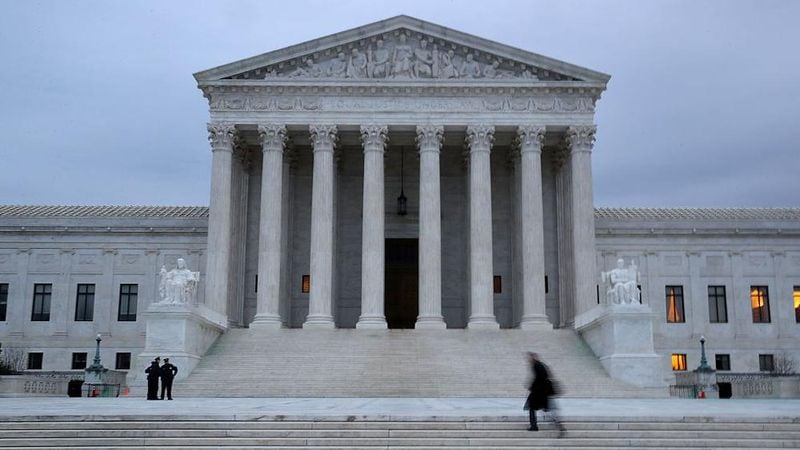The U.S. Supreme Court on Monday let stand a Texas ruling that said the right to a marriage license did not entitle same-sex couples to spousal benefits under employee insurance plans.
Houston city officials asked the high court to overturn last June’s Texas Supreme Court decision that determined all marriage-related matters were not decided when the U.S. Supreme Court found a right to same-sex marriage.
The federal court’s decision, issued without comment, allows the Texas court’s ruling to stand.
Lawyers for Houston argued that the Texas court’s ruling was wrong and short-sighted.
“Equal recognition of same-sex marriage requires more than a marriage license; it requires equal access to the constellation of benefits that the state has linked to marriage,” the city’s lawyers told the court.
Based on a lawsuit that was all but dead a year ago, the Texas case was a surprising addition to the fight over gay marriage.
The controversy began in 2013, when Houston began offering employee benefits to the same-sex spouses of employees who had been legally married in other states.
Credit: Mark Wilson
Credit: Mark Wilson
Opponents of gay marriage sued, prompting a district judge to block the benefits, ruling that they violated a state law and constitutional amendment barring government recognition of same-sex marriages. While Houston’s appeal was pending, however, the U.S. Supreme Court overturned state bans on gay marriage in June 2015, ruling that they violated the U.S. Constitution’s guarantee of equal protection by treating gay couples as second-class citizens.
Saying the ruling ended the controversy in the Houston case, the 14th Court of Appeals allowed the city to begin offering spousal benefits to same-sex couples.
The Texas Supreme Court apparently agreed, rejecting the case in September 2016.
But opponents of gay marriage launched a pressure campaign to get the all-Republican court to reconsider. A barrage of emails warned the nine judges of retribution in the GOP primaries, and Republican leaders — including Gov. Greg Abbott, Lt. Gov. Dan Patrick and Attorney General Ken Paxton — argued that the case offered an opportunity to limit the impact of the high court’s ruling on gay marriage.
In a rare reversal, the Supreme Court relented, accepting the case and eventually ruling that there is no established right to spousal benefits in same-sex marriages.






